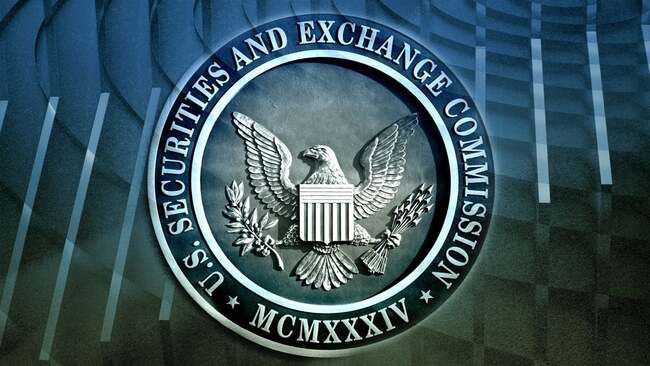Highlights:
- SEC delayed the decision on Ethereum ETFs listing options until December 3, 2024, from October 19.
- Cboe Exchange’s request to list options on nine Ethereum ETFs remains under SEC review.
- Institutional interest in cryptocurrency investment products continues to rise despite challenges for the Ethereum ETF.
According to an Oct. 11 filing, the United States Securities and Exchange Commission (SEC) has once again delayed its decision on listing options tied to spot Ethereum (ETH) exchange-traded funds (ETFs). The ruling deadline has been pushed back from October 19 to December 3.
U.S. SEC once again delays decision on whether to approve spot Ether ETF options
The U.S. Securities and Exchange Commission (SEC) has once again deferred its decision on whether to approve spot Ethereum ETF options, Cointelegraph reported, citing an Oct. 11 SEC filing. The…
— CoinNess Global (@CoinnessGL) October 12, 2024
The SEC’s delay follows Cboe Exchange’s August request to list options on nine ETFs, including Fidelity Ethereum Fund, BlackRock’s iShares Ethereum Trust, Grayscale Ethereum Trust, and Grayscale Mini Ethereum Trust, among others. In September, the SEC also postponed a similar request from Nasdaq’s electronic exchange.
JUST IN: The SEC delayed its decision on @BlackRock's iShares Ethereum Trust $ETHA options, postponing the ruling until November 10. pic.twitter.com/aAQRCJ70Qz
— CoinGecko (@coingecko) September 25, 2024
In contrast, the SEC approved the listing of Bitcoin options for BlackRock’s spot Bitcoin ETF in September. Final approval from the Options Clearing Corporation (OCC) and the Commodity Futures Trading Commission (CFTC) is still pending.
ETF Options Expected by Q1 2025
During an Oct. 9 panel discussion at the Permissionless conference, Bloomberg Intelligence analyst James Seyffart said options on BTC ETFs are expected to launch in the U.S. by Q1 2025.
“Writing options on ETFs could help advisers get more comfortable with the space,” Seyffart said. “The biggest concern with Bitcoin for many is volatility, especially downward volatility. Options can help people manage their risk better.”
Spot Crypto Options on U.S. Exchanges Mark Major Milestone
Options are contracts that grant the right to buy or sell an underlying asset at a specified price, commonly known as “call” or “put” options. In the U.S., if one party fails to meet the agreement’s terms, the Options Clearing Corporation (OCC) intervenes to settle the trade.
Listing spot crypto options on regulated United States exchanges marks a “monumental advancement” in crypto markets. The OCC safeguards traders against counterparty risk. Jeff Park, Bitwise Invest’s head of alpha strategies, stated this creates “extremely compelling opportunities” for investors in a Sept. 20 post on X.
If there were one thing to read today re the game-changing nature of Bitcoin ETF options, read (and bookmark) this one for 2025 – it's going to be wild. pic.twitter.com/On2DmUsbHX
— Jeff Park (@dgt10011) September 20, 2024
Financial advisers, responsible for managing up to half of the investment flows in the $9 trillion ETF market, use options to reduce the risks associated with sudden market fluctuations. A 2023 survey by The Journal of Financial Planning revealed that more than 10% of advisers actively use options to manage client portfolios.
Crypto ETFs Gain Traction
Despite challenges with Ethereum ETFs, institutional interest in cryptocurrency investment products continues to rise. After the SEC’s approval of U.S.-listed spot Bitcoin ETFs, more financial institutions are incorporating digital assets into their portfolio strategies.
For example, Morgan Stanley, holding $187 million in IBIT shares as of June 2024, now allows its financial advisors to promote Bitcoin ETFs to select clients. This highlights increasing institutional acceptance of digital assets, with experts anticipating more Wall Street firms will adopt similar approaches soon.
The growing demand for cryptocurrency-based investment products highlights a trend where both retail and institutional investors are pursuing greater exposure to digital assets. As regulations evolve, financial institutions are increasingly offering crypto-related products, solidifying the role of digital currencies in mainstream finance.





